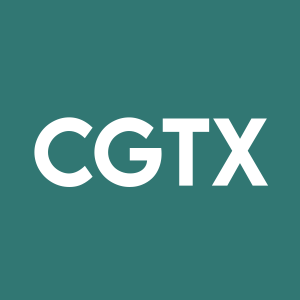Cognition Therapeutics Supports Lewy Body Dementia Awareness Month and the Need for Improved Treatments for the Second Most Common Dementia
Rhea-AI Summary
Cognition Therapeutics supports Lewy Body Dementia Awareness Month, highlighting the need for improved treatments for dementia with Lewy bodies (DLB), the second most common form of progressive dementia. DLB affects approximately 1.4 million people in the U.S. with no approved treatments available. The company is advancing CT1812 in the Phase 2 'SHIMMER' clinical trial for DLB treatment, with data readout expected in Q4 2024.
DLB is caused by the buildup of alpha-synuclein protein, forming Lewy bodies inside neurons. Symptoms include impaired cognition, visual hallucinations, REM sleep behavior disorder, and movement issues. Cognition Therapeutics partnered with the Lewy Body Dementia Association (LBDA) and the University of Miami Miller School of Medicine to design the SHIMMER trial, which has enrolled 130 patients with mild-to-moderate DLB across the U.S.
The DLB community will convene at the first Externally Led Patient-Focused Drug Development (EL-PFDD) Meeting on October 15, 2024, where patients and care partners will share their experiences with the FDA.
Positive
- None.
Negative
- None.
News Market Reaction 1 Alert
On the day this news was published, CGTX declined 6.06%, reflecting a notable negative market reaction.
Data tracked by StockTitan Argus on the day of publication.
Cognition is advancing CT1812 in the Phase 2 ‘SHIMMER’ clinical trial for the treatment of dementia with Lewy bodies with data readout in the fourth quarter of 2024
PURCHASE, N.Y., Oct. 01, 2024 (GLOBE NEWSWIRE) -- Cognition Therapeutics, Inc., (the “Company” or “Cognition”) (NASDAQ: CGTX), a clinical stage company developing drugs that treat neurodegenerative disorders, supports Lewy Body Dementia Awareness Month and the critical need for more attention, research, and treatments for people with dementia with Lewy bodies (DLB). DLB is the second most common form of progressive dementia, affecting approximately 1.4 million people in the U.S., with no approved treatments available.
DLB is caused by the buildup of a protein called alpha-synuclein, which forms deposits called Lewy bodies inside neurons. Over time, these deposits interfere with normal cellular functions, causing a progressive decline in cognitive and motor skills. Symptoms of DLB vary among patients and fluctuate in intensity, making it challenging to diagnose and manage. These symptoms include impaired cognition and mental organization, visual hallucinations, REM sleep behavior disorder, and movement issues similar to Parkinson’s disease.
"Lewy Body Dementia Awareness Month is an important opportunity to raise awareness of this underdiagnosed but prevalent condition that can be devastating for patients and their loved ones," said Lisa Ricciardi, CEO of Cognition Therapeutics. "At Cognition, we are committed to developing new treatments for neurodegenerative diseases like DLB, and believe our lead candidate, CT1812, has the potential to address the complex pathology driving this disease."
Cognition Therapeutics partnered with experts at the Lewy Body Dementia Association (LBDA) and the University of Miami Miller School of Medicine to design the Phase 2 SHIMMER trial, which has enrolled 130 patients with mild-to-moderate DLB at centers of excellence across the United States. Topline results, which are anticipated later this year, are expected to provide insights into this patient population and the potential therapeutic impact of CT1812 on the constellation of symptoms that affect DLB patients.
“The DLB community will be convening at the first Externally Led Patient-Focused Drug Development (EL-PFDD) Meeting* on October 15, 2024. During the meeting, patients and their care partners will relay their experiences directly to the FDA,” said Anthony Caggiano, M.D., Ph.D., Cognition’s CMO and head of R&D. “We look forward to hearing more about the most challenging aspects of DLB from these patient testimonials and applying those learnings to our development plan for CT1812.”
For registration and more information on the EL-PFDD meeting on DLB, which is hosted by the LBDA in collaboration with the Alzheimer’s Association, visit https://www.lbda.org/el-pfdd.
About CT1812
CT1812 is an experimental orally delivered small molecule oligomer antagonist that penetrates the blood-brain barrier and binds selectively to the sigma-2 receptor complex. Preclinical and clinical data demonstrate that this binding results in the displacement of toxic oligomers. The sigma-2 receptor complex is involved in the regulation of key cellular processes such as membrane trafficking and autophagy that are damaged by oligomers and other stressors. This damage to sensitive synapses can progress to a loss of synaptic function, which drives the progression of neurodegenerative diseases like Alzheimer’s disease and DLB.
About the SHIMMER Study
The SHIMMER study is a Phase 2 signal-finding clinical trial that enrolled 130 adults with mild-to-moderate DLB. Participants are evenly randomized to receive either placebo or one of two oral once-daily doses of CT1812 (100 mg or 300 mg) for six months. The SHIMMER study is supported by a grant award from the National Institute on Aging of the National Institutes of Health (NIH) totaling approximately
About Cognition Therapeutics, Inc.
Cognition Therapeutics, Inc., is a clinical-stage biopharmaceutical company discovering and developing innovative, small molecule therapeutics targeting age-related degenerative disorders of the central nervous system and retina. We currently are investigating our lead candidate CT1812 in clinical programs in Alzheimer’s disease, dementia with Lewy bodies (DLB) and dry age-related macular degeneration (dry AMD). We believe CT1812 and our pipeline of σ-2 receptor modulators can regulate pathways that are impaired in these diseases that are functionally distinct from other approaches for the treatment of degenerative diseases. More about Cognition Therapeutics and our pipeline can be found at https://cogrx.com.
Forward-Looking Statements
This press release contains forward-looking statements within the meaning of The Private Securities Litigation Reform Act of 1995. All statements contained in this press release, other than statements of historical facts or statements that relate to present facts or current conditions, including but not limited to, statements regarding our product candidates, including CT1812, and any expected or implied benefits or results, including that initial clinical results observed with respect to CT1812 will be replicated in later trials and our clinical development plans, are forward-looking statements. These statements, including statements relating to the timing and expected results of our clinical trials involve known and unknown risks, uncertainties and other important factors that may cause our actual results, performance, or achievements to be materially different from any future results, performance, or achievements expressed or implied by the forward-looking statements. In some cases, you can identify forward-looking statements by terms such as “may,” “might,” “will,” “should,” “expect,” “plan,” “aim,” “seek,” “anticipate,” “could,” “intend,” “target,” “project,” “contemplate,” “believe,” “estimate,” “predict,” “forecast,” “potential” or “continue” or the negative of these terms or other similar expressions. We have based these forward-looking statements largely on our current expectations and projections about future events and financial trends that we believe may affect our business, financial condition, and results of operations. These forward-looking statements speak only as of the date of this press release and are subject to a number of risks, uncertainties and assumptions, some of which cannot be predicted or quantified and some of which are beyond our control. Factors that may cause actual results to differ materially from current expectations include, but are not limited to: competition; our ability to secure new (and retain existing) grant funding; our ability to grow and manage growth, maintain relationships with suppliers and retain our management and key employees; our ability to successfully advance our current and future product candidates through development activities, preclinical studies and clinical trials and costs related thereto; uncertainties inherent in the results of preliminary data, pre-clinical studies and earlier-stage clinical trials being predictive of the results of early or later-stage clinical trials; the timing, scope and likelihood of regulatory filings and approvals, including regulatory approval of our product candidates; changes in applicable laws or regulations; the possibility that the we may be adversely affected by other economic, business or competitive factors, including ongoing economic uncertainty; our estimates of expenses and profitability; the evolution of the markets in which we compete; our ability to implement our strategic initiatives and continue to innovate our existing products; our ability to defend our intellectual property; impacts of ongoing global and regional conflicts on our business, supply chain and labor force; and the risks and uncertainties described more fully in the “Risk Factors” section of our annual and quarterly reports filed with the Securities Exchange Commission and are available at www.sec.gov. These risks are not exhaustive and we face both known and unknown risks. You should not rely on these forward-looking statements as predictions of future events. The events and circumstances reflected in our forward-looking statements may not be achieved or occur, and actual results could differ materially from those projected in the forward-looking statements. Moreover, we operate in a dynamic industry and economy. New risk factors and uncertainties may emerge from time to time, and it is not possible for management to predict all risk factors and uncertainties that we may face. Except as required by applicable law, we do not plan to publicly update or revise any forward-looking statements contained herein, whether as a result of any new information, future events, changed circumstances or otherwise.
| Contact Information: Cognition Therapeutics, Inc. info@cogrx.com | Casey McDonald (media) Tiberend Strategic Advisors, Inc. cmcdonald@tiberend.com | Mike Moyer (investors) LifeSci Advisors mmoyer@lifesciadvisors.com |
This press release was published by a CLEAR® Verified individual.









